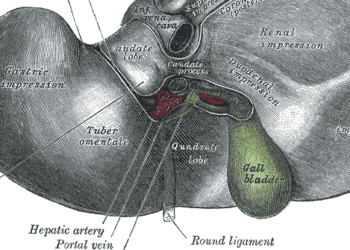The Scan by 2 Minute Medicine®: UK Approves First CRISPR Treatment, Cardiac Considerations, Pelicans Player Has a Pneumothorax, and Life Expectancy Gaps
11-27-2023
The Scan by 2 Minute Medicine® is a pop-culture medical newsletter and exclusive benefit for 2 Minute Medicine Plus subscribers.
UK Approves First CRISPR Treatment
The Story: Earlier this month, the United Kingdom approved the first-ever medicine that uses CRISPR technology. The new medication, Casegvy, uses the Nobel Prize-winning gene editing tool to treat sickle cell disease. The landmark decision reflects a new wave of treatments in the fight against sickle cell disease and a new era in medicine whereby gene editing tools can help treat genetic diseases.
Sickle Cell Disease
Sickle cell disease is a genetic disorder that occurs when someone inherits two copies of the gene encoding for an abnormal hemoglobin protein. Hemoglobin is the main component of red blood cells that helps carry oxygen throughout the body. In sickle cell disease, red blood cells become C-shaped, or “sickled,” and breakdown much quicker than normal red blood cells, leading to anemia, and can block the flow of blood in small vessels, leading to symptoms such as pain and vision problems, or serious complications such as stroke and organ damage. Complications of sickle cell disease can be life-threatening, and the life expectancy for those affected is significantly reduced compared to the rest of the population. However, the burden of disease is not distributed equally: it is the most common genetic disorder affecting African Americans, with 1 in 500 having the disease and 1 in 12 being a carrier of the mutation.
Genetic Editing
The only known cure for sickle cell disease is a bone marrow transplant, which replaces the stem cells carrying the genes for the abnormal hemoglobin protein with healthy ones. However, finding a match for a bone marrow transplant can prove difficult, and complications such as graft versus host disease, where the transplanted cells attack the recipient’s cells, make the cure less feasible. This leaves most sickle cell patients with no cure, and their only option is symptom relief. However, the new CRISPR technology may circumvent these issues. The treatment involves removing a patient’s own stem cells and modifying the DNA using CRISPR technology to correct the mutation before reimplanting them. The treatment was shown to completely relieve painful episodes in 28 patients for at least one year following treatment. The new medication represents a huge step forward in improving the quality of life for sickle cell patients and gives hope to others with genetic diseases about the use of CRISPR technologies in future therapies.
Cardiac Considerations
Recent changes to a cardiac risk algorithm have removed race as one of the biological risk factors for cardiovascular disease. The use of race in clinical algorithms has long been debated, and the decision to remove it from consideration in measurements of cardiac risk points to advances in addressing racial bias within the healthcare system. The American Heart Association issued a statement that race is not a biological factor that can increase the risk of heart disease. Rather, it can be a social factor highlighting the impact of the social determinants of health. However, they concluded that using race as a proxy for social factors could be harmful and lead to inequitable treatment decisions. The National Kidney Foundation previously removed race from estimates of kidney function.
However, the changes to the clinical algorithms should not detract from the disproportionate effects of cardiovascular disease: Black Americans are not only at higher risk of cardiovascular disease, but they are also more likely to die than White Americans. Addressing issues such as structural racism and other social determinants of health is necessary to shrink the gap in cardiovascular disease burden and outcomes.
Pelicans Player Has a Pneumothorax
NBA player for the New Orleans Pelicans, CJ McCollum, had an unexpected start to the season when he was diagnosed with a pneumothorax for the second time in his career. A pneumothorax, or “collapsed lung,” occurs when air enters the space between the lung and chest wall. The air exerts pressure on the lung, causing it to collapse. Injury to the chest, lung disease, or ruptured air blisters are just some of the things that can precipitate a pneumothorax. McCollum suffered his first pneumothorax back in 2021 following a game-related injury to the chest. Other athletes who have experienced a collapsed lung include Drew Brees and Rob Gronkowski.
Treatment for a pneumothorax depends on the size and severity of the collapse. A small pneumothorax can heal on its own with time, while larger or more severe cases may require evacuation of the air around the lung using a needle or even surgery. Although there are no clear guidelines on when an athlete can return to play following a pneumothorax, radiographic resolution of the condition is necessary. While there’s no timeline for McCollum’s return yet, he was able to hit the court again six weeks after his first injury in 2021.
Life Expectancy Gaps
A recent JAMA study indicated that the gender gap in life expectancy in the United States has widened to 5.8 years—the largest in almost 30 years. While American women have boasted a higher life expectancy than men for quite some time, the difference between men and women is at a startling high. A huge contributor to this difference is COVID-19 and the gender differences associated with the virus. Men are more likely to be exposed to the virus and to die upon infection. However, this isn’t the only group experiencing drops in life expectancy. Experts show the mortality gap between college graduates and those without a college degree is widening. Those without college degrees likewise experienced a reduction in life expectancy during the pandemic.
©2023 2 Minute Medicine, Inc. All rights reserved. No works may be reproduced without expressed written consent from 2 Minute Medicine, Inc. Inquire about licensing here. No article should be construed as medical advice and is not intended as such by the authors or by 2 Minute Medicine, Inc







